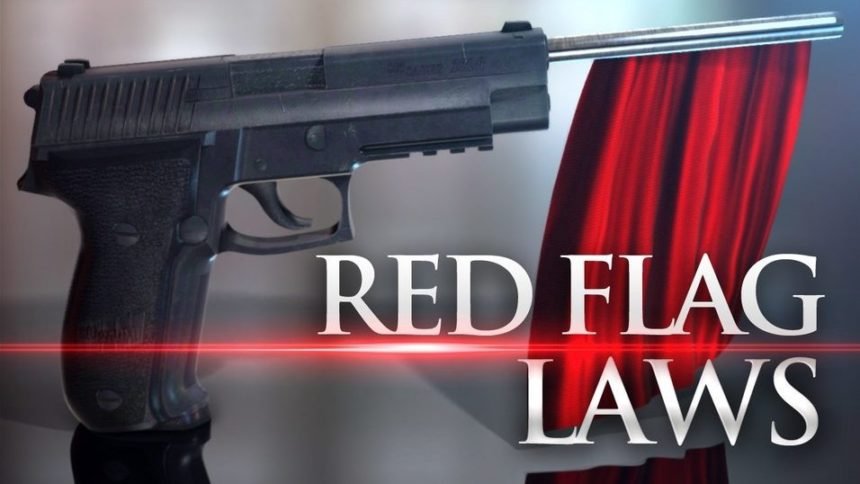Red-flag gun bill heads to New Mexico governor for signature

SANTA FE, New Mexico — The Democrat-led New Mexico Legislature approved a red-flag gun law Thursday night with a final vote of the state House, virtually ensuring adoption of new procedures for courts to order the surrender of firearms from people who appear to pose a danger to themselves or others.
The House approved the bill on a 39-31 vote with Republicans and several Democrats in opposition, sending the bill to a supportive Democratic governor.
As they cast votes, Republican legislators held aloft paperback copies of the Constitution in protest.
The bill would allow law enforcement officers to petition a state district court to order the temporary surrender of firearms by a gun holder who “poses a significant danger of causing imminent personal injury to self or others.”
Complaints also could be filed indirectly by sworn affidavits from relatives, employers or school administrators.
New Mexico Gov. Michelle Lujan Grisham supports the proposal that gained momentum after the August 2019 mass shooting at a Walmart store in nearby El Paso, Texas. She says new tools are needed for law enforcement to prevent gun violence and better secure the safety of schools.
A similar proposal last year stalled in the state Senate. This year deliberations began in the Senate, which endorsed the bill on a 22-20 vote last week.
Democratic Rep. Antonio Maestas of Albuquerque urged House colleagues to support the legislation while recounting an unsuccessful attempt to coax a gun away from a cousin by marriage, who later died by suicide.
“Let’s vote for life, and let’s vote for our families," he said.
Republicans made repeated, unsuccessful attempts to amend the bill. Any changes would have triggered the need for a new Senate vote of concurrence.
"This bill is not ready for prime time, this bill has holes in it,” Townsend said.
Supporters of red flag laws say they can reduce suicides and gun violence and lessen the risk of mass shootings. Gun-rights supporters contend they violate not only the right to own firearms but other constitutional guarantees, such as the right to due legal process, to confront an accuser, and against unreasonable searches and seizures of property.
Seventeen states and the District of Columbia have some sort of red flag law, with most enacting them starting in 2018.
